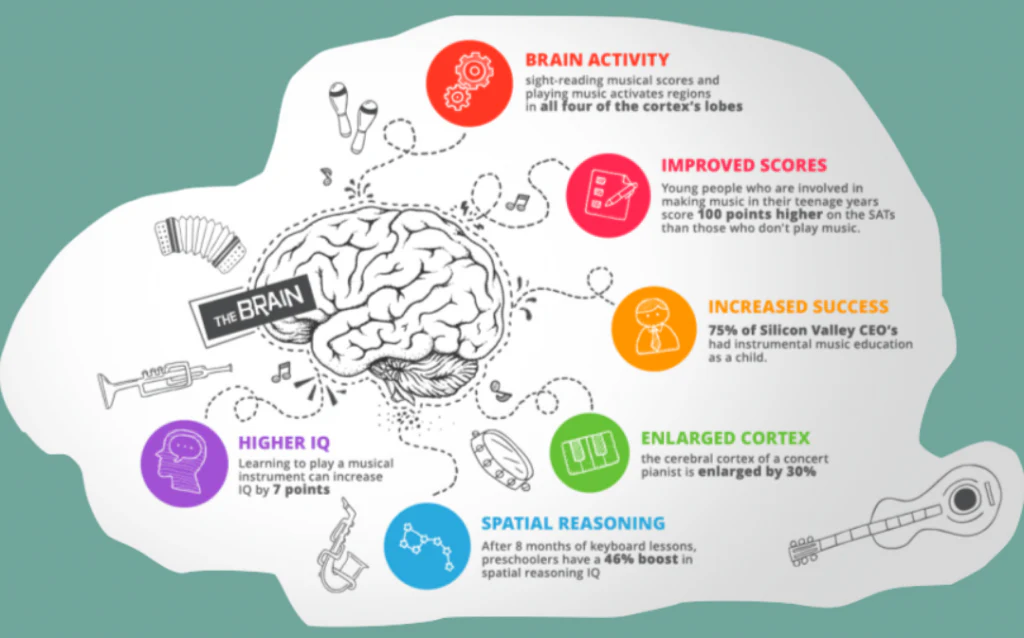By Vasileios Papadopoulos
Primary Music Teacher
Playing a musical instrument offers a wide array of benefits that extend far beyond the joy of making music. Whether you're learning to play the piano, trumpet, guitar, violin, or any other instrument, the advantages are profound and diverse, touching on cognitive, emotional, and social aspects of life.
Cognitive Development
Learning an instrument enhances brain function in many ways. Studies show that musicians have improved memory, attention, and problem-solving skills. Playing an instrument requires complex mental processing, involving both the left and right hemispheres of the brain. This constant stimulation improves overall brain function and promotes greater mental flexibility. It also helps to develop language skills and enhances reading and mathematical abilities, as music involves patterns, sequences, and structure that are similar to language and math.
Emotional Well-being
Music has long been linked to emotional expression and regulation. Playing an instrument provides a healthy outlet for emotions, whether it's through the cleansing of a powerful melody or the serenity of a simple song. For many, playing music can be a form of self-expression that words alone cannot achieve. Additionally, it has been shown to reduce stress and anxiety, offering a therapeutic way to manage emotions and boost mental health. Regular practice also fosters a sense of accomplishment, building confidence and self-esteem.
Social Skills
Learning an instrument can also promote social interaction. Whether through group lessons, ensembles, or performances, musicians often engage with others who share similar interests, building teamwork and communication skills. Collaborative music-making, such as playing in a band or orchestra, encourages cooperation and the ability to listen and respond to others in real-time. These social benefits are particularly important in developing empathy and emotional intelligence.
Physical Benefits
In addition, playing an instrument can have physical benefits, such as improving hand-eye coordination, fine motor skills, and posture. Instruments like the piano or violin require precise finger movements, helping to develop dexterity and coordination. To summarize, playing musical instruments is a powerful tool for enhancing cognitive, emotional, social, and physical well-being, making it a rewarding pursuit for both children and adults.






